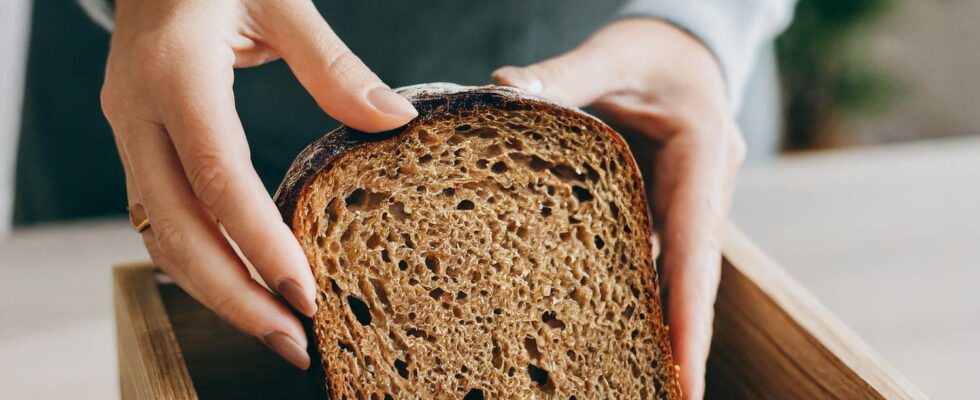“Even better if eaten at breakfast” according to researchers.
Nutritionists are unanimous: regular consumption of white bread such as “baguette” or “sandwich bread” promotes blood sugar spikes, contributes to inflammation in the body and weight gain. In addition, white bread is quite poor nutritionally and contains very little fiber because it is made from refined flour from which the bran and germ have been removed during processing. Not very filling, this bread is far from being the best for health and weight. “Many people think they need to cut bread out of their diet if they’re trying to lose weight, but that’s not necessarily true. Although typical white bread does not provide many nutrients to the body, know that there are other types of bread that are good for the body“, explains nutritionist Christine VanDoren, to the women’s media SheFinds.
The best bread “contains only 65 calories per slice, creating a calorie deficit if eaten for breakfast for example“. It has a low glycemic index (50 compared to 80 for the classic baguette), which limits sudden increases in blood sugar and indirectly, snacking and sugar cravings. Also, the flour with which this bread is made contains a proportion higher in fiber (especially soluble fiber) and nutrients (selenium, thiamine, manganese, potassium) than refined wheat flour, which fully contributes to a feeling of satiety and helps prevent cravings throughout the day Several studies have studied the effects of this bread on appetite regulation and weight management. One of them published in the journal American Journal of Clinical Nutrition showed that eating this bread for breakfast for 2 weeks significantly reduced the appetite of participants who tended to eat less during the following lunch and dinner.
Furthermore, this bread would have anti-inflammatory effects and we know that a pro-inflammatory diet contributes to weight gain. It would therefore be particularly beneficial for improving intestinal function in people who have metabolic or digestive problems (irritable bowel syndrome, metabolic syndrome, etc.). In any case, this is what two studies suggest, one published in the Journal of Nutrition and the other in the Scandinavian Journal of Gastroenterology.
With its rustic taste, its dense crumb and its gray color, rye bread has everything to please. The ideal is to opt for whole grain rye bread rather than a refined version to maximize fiber and nutrient intake, recommends the nutritionist in the article. As part of a healthy and balanced diet, you can consume 150 to 200 grams of rye bread per day, or around 3 nice slices.
